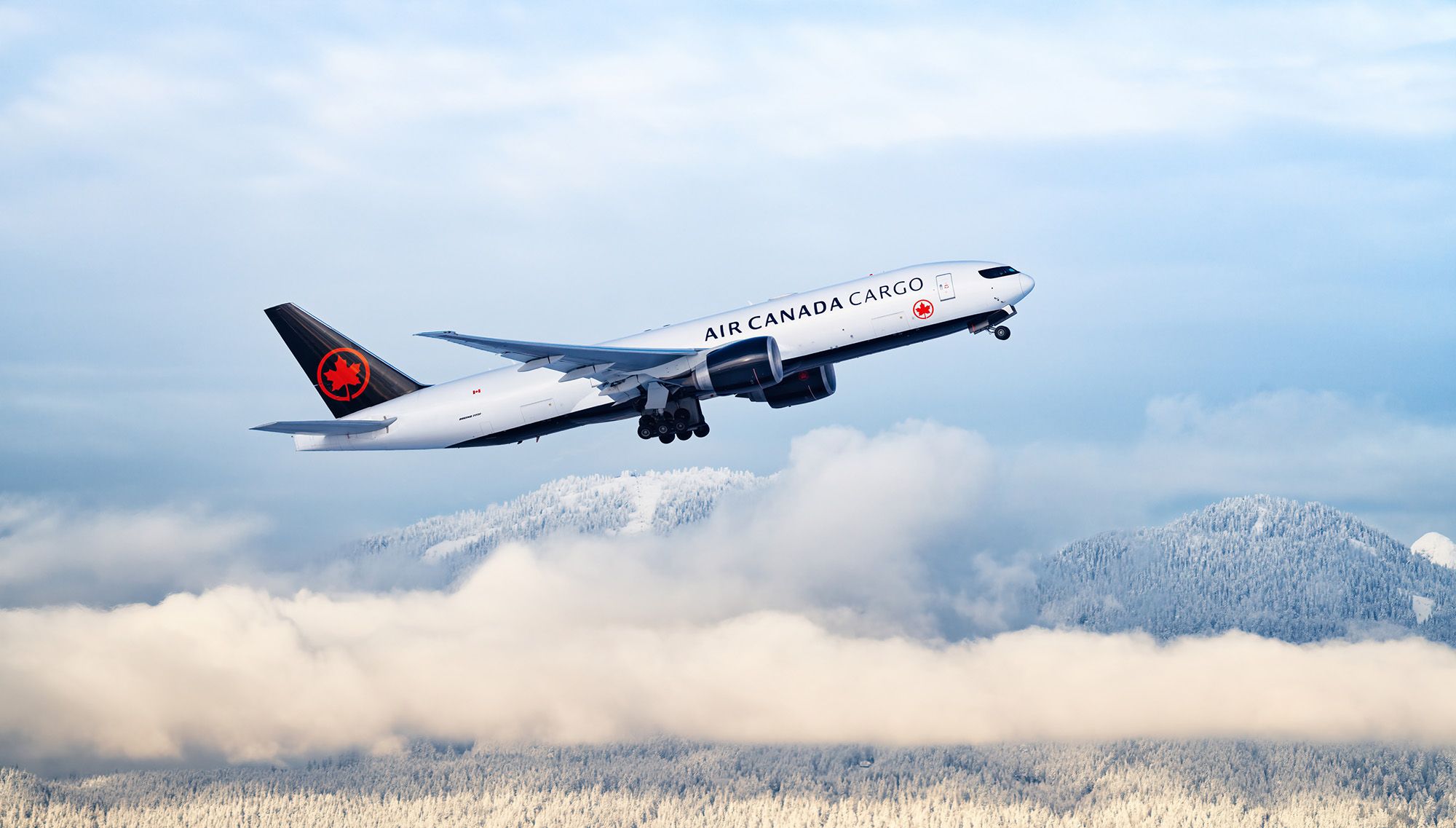Earlier in May, Air Canada Cargo operated its final cargo-in-the-passenger-cabin freighter flight with the converted Airbus A330-300s, Boeing 767-300s, and 777-300ERs, and the main airline reconverted the two of the three aircraft types back for commercial flight usage. Since then, the cargo subsidiary has been using only one type of converted freighter, but is now looking to add Boeing 777 freighters to its fleet.
Order up for widebody freighters
During the pandemic, the European Union Aviation Safety Agency (EASA) issued approvals and exemptions for airlines to transport cargo in passenger cabins. However, the EASA ended the authorization on July 31st as passenger demand picked up. In line with the rules, Air Canada Cargo stopped operations and returned the Airbus A330s and Boeing 777s to passenger service, relying on the converted Boeing 767 freighters for normal all-cargo operations.
Currently, the cargo carrier has two of the freighter in service, and two more have already been delivered but are only scheduled to enter service next year. Another six more converted Boeing 767 freighters are due to be added over the next few years. However, Air Canada Cargo is seeking to expand its fleet further to solidify its presence in the competitive cargo market. And given its experience with the temporarily converted Boeing 777 aircraft, Air Canada Cargo has decided there is no better freighter to expand its fleet with than the actual freighter itself.
Vice President of the cargo division at Air Canada, Jason Berry, highlighted the freighter choice, commenting,
"Today, we announced a further expansion of our fleet with the acquisition of two factory-built Boeing 777 freighters, to enter service in 2024. The investment in long-range widebody freighters, combined with our growing 767 freighter fleet and robust passenger network will allow us continue to bring to life the most flexible and diverse cargo operation in the Americas.”
Recovering from a dampened quarter
The news of a fleet expansion also comes as Air Canada announced its second-quarter results. It saw cargo revenues declining by more than 16% year-on-year to CA$299 million ($232.553 million). As with the air cargo market in general, cargo carriers have been negatively impacted by drops in cargo capacity in the Asia-Pacific region, notably in China, Hong Kong, and Japan, as these countries remain in pandemic lockdowns.
Even as cargo capacity increased in other regions, the lack of traffic within the vital Asia-Pacific region still has a severe consequences, as Berry commented:
"Although capacity was redeployed to other regions, higher revenues from Europe, Australia and the Americas did not compensate for the revenue lost primarily in China in terms of volume and yield."
Discover more of the latest aviation news with Simple Flying.
Nonetheless, Berry remains optimistic that Air Canada Cargo will progress more evenly in the remaining quarters as it continues to strategically navigate its footing within the cargo market and smartly invest in the future. Berry added:
"Our careful and targeted investments in our freighter fleet and our self-handled cargo-only ground operations in our major hubs throughout Canada and internationally. Together with staying laser-focused on our quality of service to the vast forwarding community we serve, are key strategies as we continue to strengthen and grow as North America’s only combination carrier.”
Bottom line
It was only recently when Air Canada transitioned into becoming a combination carrier with the inclusion of Air Canada Cargo. Though it may seem like a risk that's paying off, it comes with hefty costs in current times. Air Canada continues to incur expenses related to the operation of freighter aircraft, a slight disadvantage compared to its competitor airlines which do not operate cargo businesses. It could be a sinking rock for the mainline carrier if cargo demand continues to dwindle.



.jpeg)
.jpeg)